Data Democratization in Data Lake
Published: Dec 9th 2024 | 8 min read
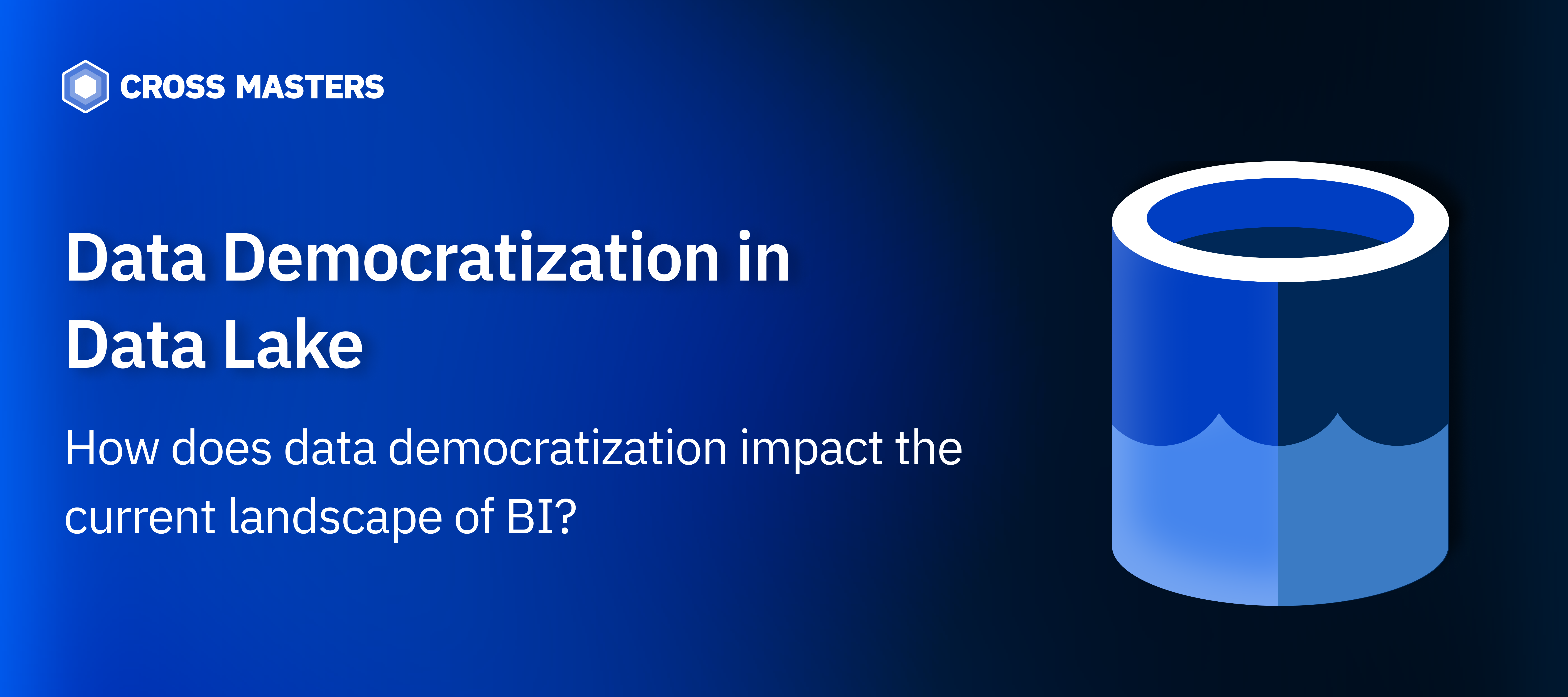
In today’s globalized world, data is one of the most important assets for companies, being vital for their decision making and success on the market. But despite its great value, data was traditionally only accessible to a limited selection of people in specific departments, typically those where those working with the data would possess the skills and tools not just to extract it from sophisticated systems, but also interpret it.
With advances made in data analysis, this approach has become inefficient, and the trend has now moved towards making data available to a broader spectrum of employees in organizations, with the stated goal of supporting informed decision making. This process, known as data democratization, is quickly becoming a key factor in fostering growth in modern organizations.
What is data democratization?
The objective of data democratization is to enable all employees of an organization to easily access data, regardless of their technical prowess, and use it for strategic decision making directly, without having to rely on data specialists’ insights. However, before data can be democratized, the way it is worked with needs to fundamentally change to ensure its availability in a simple and easily usable format, ensuring that end users can achieve maximum efficiency.
The Data Lake architecture is one of the key tools for efficient data management within an organization. It provides a centralized and unified platform for storing and processing data in one place. Not only does this approach simplify the process of managing data, it also facilitates easy access for users across the board.
Microsoft Azure offers several technologies which contribute to data democratization, such as Azure Data Lake Storage, Azure Synapse Analytics, or Azure Databricks, which combine scalability and flexibility to help manage and analyse data.
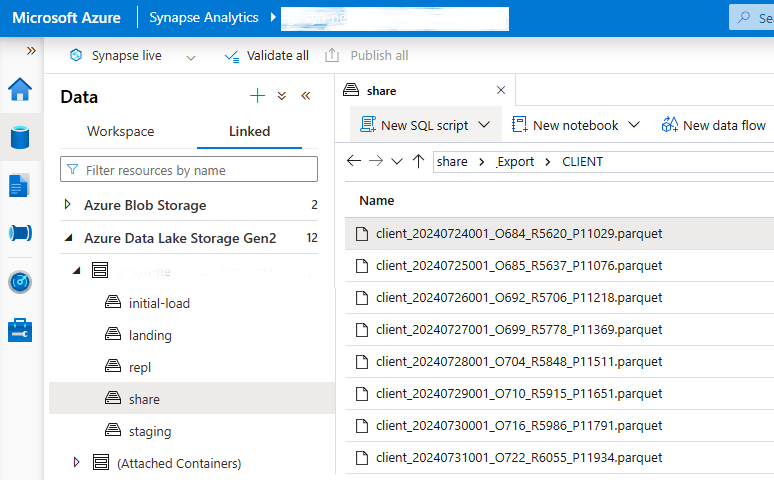
Azure Data Lake Storage allows the safe storage of large amounts of data in both structured and unstructured formats. Azure Synapse Analytics facilitates fast data processing, which allows users to quickly access the data when needed.
Key aspects of democratization
Data democratization may seem simple at first glance, but the difficulty of implementing it may be considerable. One of the main obstacles is typically the isolated nature of data whose ownership is unclear. Additionally, insufficient data literacy within an organization can lead to an incorrect interpretation of data and, consequently, to misguided decisions. Thus, ensuring the quality, integrity, and security of the data in question is one of the most important tasks in the process of making data available.
However, there are other aspects beyond just ensuring access to the end repository where data is stored. Data democratization is, in fact, a much more complex approach comprised of a wide range of measures and strategies. These include the implementation of a new, security-driven data management strategy involving the implementation of advanced security measures and control mechanisms intended to prevent unauthorized access and data loss, as well as the creation of an efficient storage architecture capable both of facilitating easy access and storing data to ensure it will be readily available for a plethora of analyses. Furthermore, the simplification of often highly complex data processes (meaning how data is collected, processed, stored, and shared) is also required.
Let us take a closer look at the key aspects of data democratization:
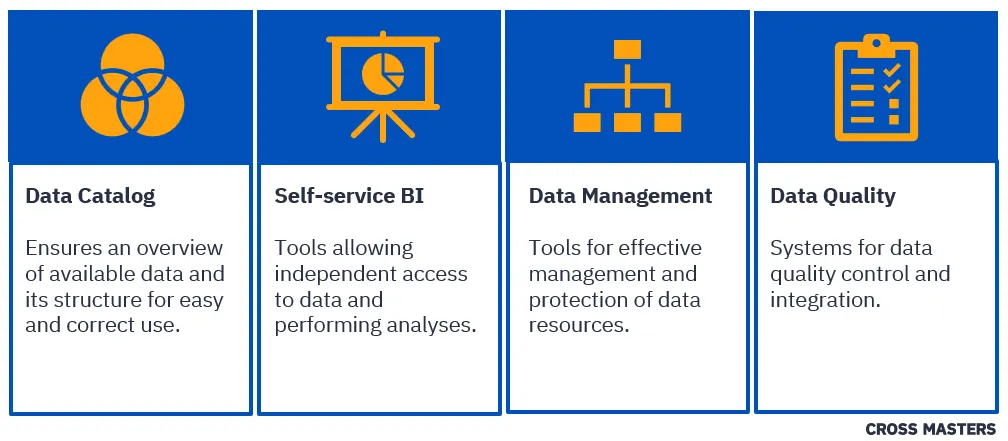
Data catalogue
One of the main challenges of data democratization is ensuring access to relevant data for a wide range of employees and teams in an organization. This requires a robust infrastructure capable of processing large amounts of data and providing easy access to authorized users.
In order to reach maximum efficiency, all data sources, schemas, metadata, and data quality indicators need to be carefully documented and catalogued to ensure that users have a clear overview of what data is available and how it is structured, which is helpful in ensuring data will be used correctly.
Microsoft Purview, a unified platform for data management, plays a pivotal role in this regard. Purview enables cataloguing and metadata management across an entire organization, helping users to easily search for and monitor data sources, which in turn makes it easy to access data according to users’ needs and abilities.
While working with Microsoft Purview, several practical features are readily available. One such is the automatic cataloguing of data sources, which allows for the effortless scanning of data sources such as Azure Data Lake or SQL databases, the results of which are then available in an easy-to-navigate catalogue.
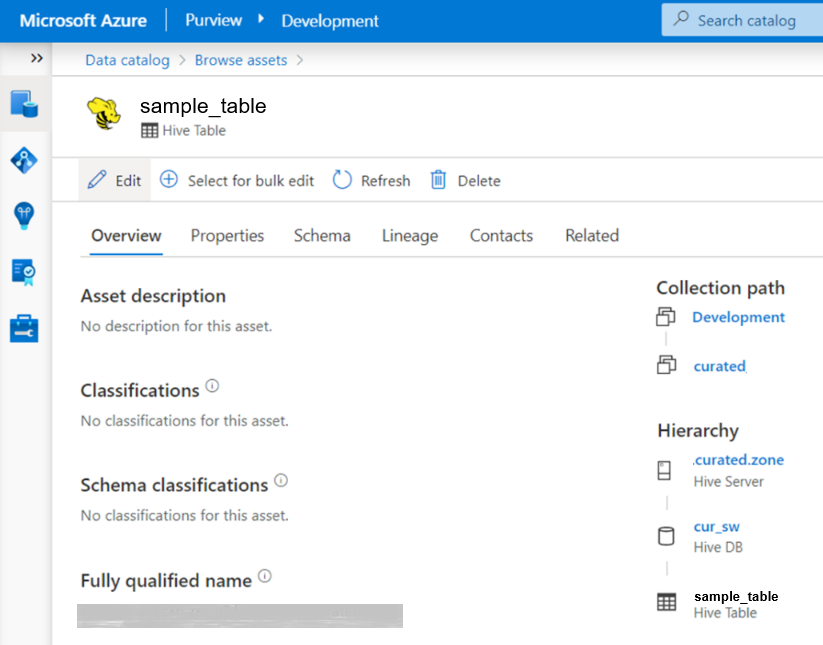
Users can easily manage metadata by adding descriptions, tags, and glossary terms, which make navigating and organizing data significantly easier.
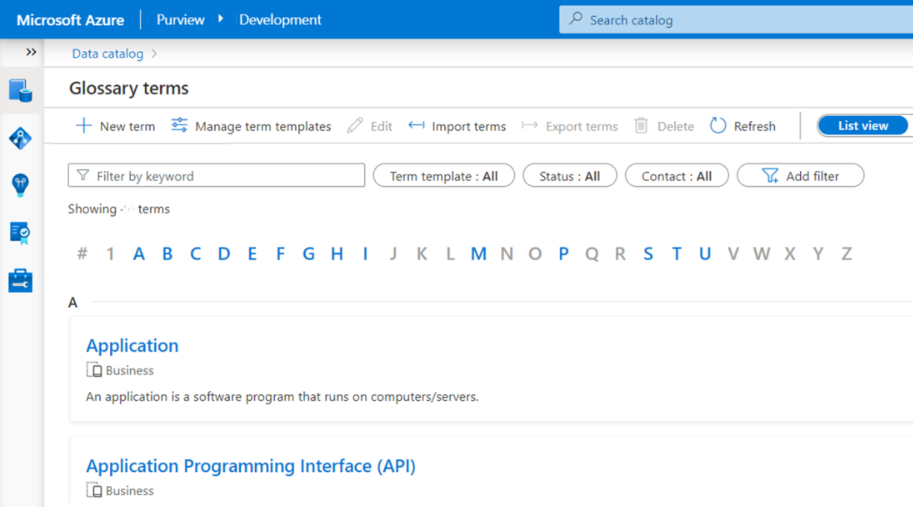
Using search and exploration tools, users can very quickly find specific data or data tables according to a given set of criteria. Azure Purview also enables the monitoring of data lineages, visualizing the flow of data across different systems. It can also be used to help ensure compliance with applicable legislation: Purview supports the identification of sensitive data and their classification as such, helping organizations to stay in line with security standards and data management rules.
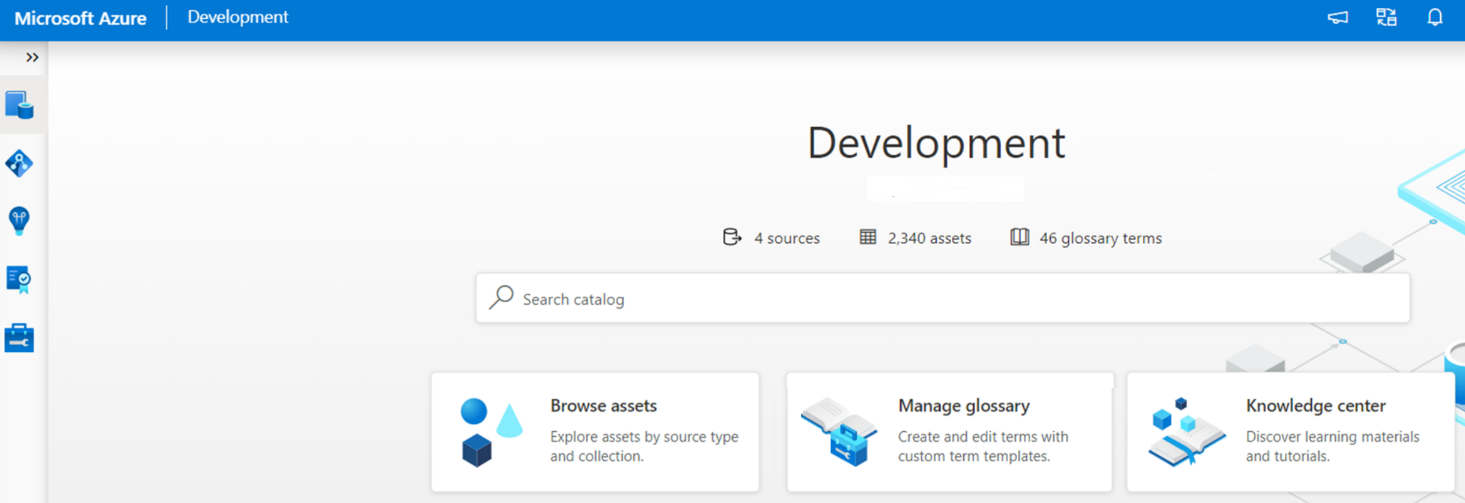
Self-service BI
Another key aspect of data democratization is the implementation of self-service tools. These allow employees to access data directly on their own and make analyses without having to rely on a specialized data team.
It is important to allow users to perform different kinds of analyses, be it descriptive ones, focused on providing an overview of past events, predictive analyses, which allow for the forecasting of future trends, prescriptive analyses, which offer insights and recommendations for optimal decision making, or simply visualizations aimed at gaining a better understanding of the available data.
Aside from the purely technological aspects of this undertaking, fostering a data culture in the organization is also crucial. This includes supporting the growth of data literacy and cross-team co-operation, as well as supporting open access to data and its usage.
It is necessary to support the development of employees’ data literacy proactively through education and providing easily accessible technical support for working with BI tools. This includes educating employees on efficiently accessing data, interpreting it and using it in different contexts. It is imperative that employees be aware how and when to apply data to specific business problems and that they be sure the data they are working with is accurate and reliable. This process involves learning how to check data and how to utilize it in a secure manner.
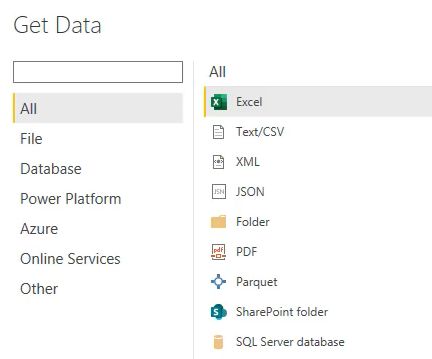
Data quality and maintenance
Data management tools allow organizations to oversee and protect their data sources from misuse. Additionally, data management contributes to data democratization by creating an infrastructure for the sharing of data securely and in a controlled manner. One example of such a tool is Google Cloud’s BigQuery, which offers a range of robust tools for managing and analysing large quantities of data and empowers organizations to quickly analyse their data in real time, in accordance with security standards and applicable regulation.
However, availability alone is not sufficient: users must be sure that the data they are working with is accurate and up to date. This requires implementing a robust system for checking both the data itself and its integration, and for data source maintenance. In this context, advanced tools for monitoring data quality can be useful. For example, the Waaila application allows users to set up automatic data quality testing, helping organizations identify and rectify inconsistencies before decision making is impacted.
Privacy concerns could be another challenge related to data democratization: as more people gain access to sensitive information, the risk of breaches increases. To counter this, organizations must set up protocols for handling sensitive information such as anonymization, encoding, and strict access control.
The future of data democratization
In the future, the role of data in our lives will continue to become more and more pivotal. For organizations, this will require a commitment to a continuous development of their data infrastructure, efficient data management, and the integration of tools to facilitate handling data. As a central storage for raw data of various formats, Data Lake will play a central role in this transformation. Moreover, with the increasing importance of safeguarding personal data, ever more robust security measures and strategies will need to be applied to data management.
Last but not least, advanced analytical tools such as machine learning and AI will play a crucial role in this process in the future. These technologies will enable organizations not just to analyze data from the past, but also predict future trends and take proactive measures based on the gained insights.
The future of data democratization rests in a synthesis of new technologies, abilities, and a responsible approach to data. Organizations that accept this challenge will quickly gain a competitive advantage and, above all, will be well-equipped to handle the challenges of the dynamically evolving market.
